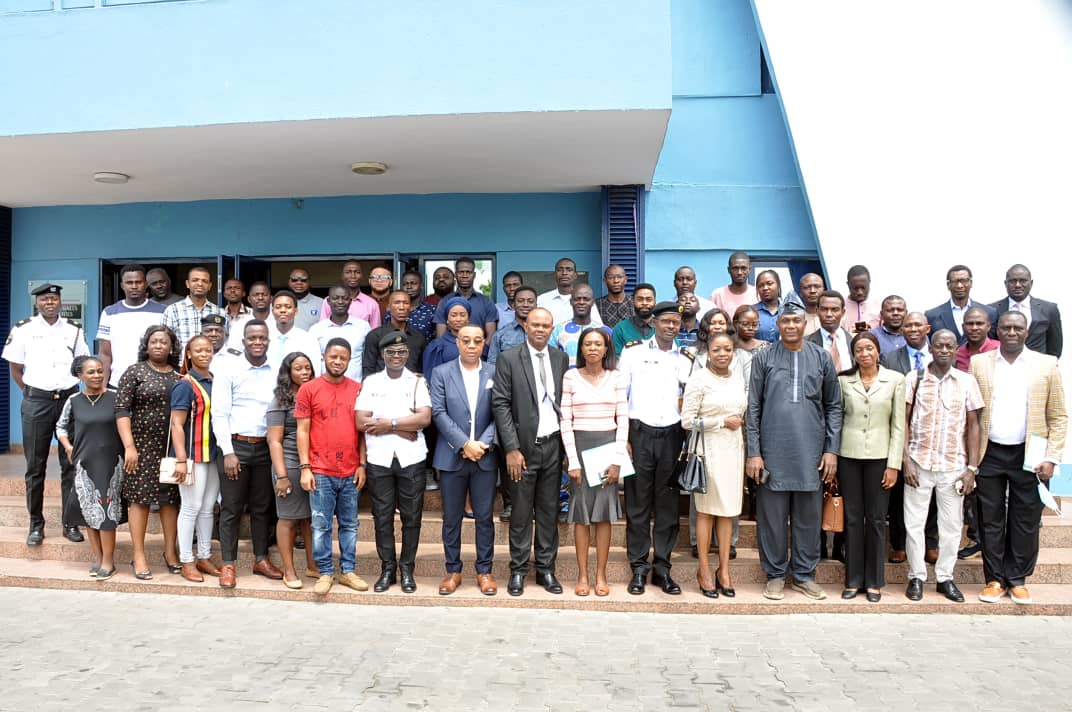
WELCOME ADDRESS BY DR. OLUTOYIN OKEOWO, CHAIRMAN, BOARD OF DIRECTORS, EQUIPMENT LEASING ASSOCIATION OF NIGERIA (ELAN), AT THE 6TH FLEET MANAGEMENT CONFERENCE HELD ON WEDNESDAY, 27th APRIL 2022, AT LCCI TRAINING CENTER, CENTRAL BUSINESS DISTRICT, IKEJA LAGOS
Esteemed Guest Speaker and Panelists
Distinguished Guests
Directors of ELAN
Distinguished Participants
Ladies and Gentlemen,
It gives me great pleasure to welcome you, on behalf of the Equipment Leasing Association of Nigeria (ELAN), to the 6th Fleet Management Conference organised by the Association. We are most delighted to have the presence of distinguished Guest Speaker and Guest Panelists in our midst. We express our sincere gratitude to you all for creating time to honour our invitation in spite of your very busy schedules.
The Fleet Management Conference is the gathering of eminent stakeholders in fleet management business community. Over the years, the Fleet Management Conference has become a veritable platform for engagement among stakeholders in the industry, facilitating business networking, business development, investment, professionalism that engenders best practices in fleet management business in Nigeria. Participants at the conference cut across private and public sectors, including lessors, fleet managers, vendors, high net worth professionals and entrepreneurs from the business community, MDA’s and development partners etc.
This year’s Conference is divided into two sessions – Business and Technical Sessions, to provide maximum benefit for stakeholders in the fleet Management industry in Nigeria. The Business session for this year’s fleet conference, shall focus on the topic: “ENHANCING THE STAKEHOLDERS’ SYNERGY IN FLEET MANAGEMENT INDUSTRY”, which will soon be discussed by distinguished experts. The session is designed to facilitate discussion and business networking among the various stakeholders in the fleet management ecosystem including Vehicle Manufacturers/Vendors, Fleet Managers, Regulators and Lessors. It is packaged to create a synergy that will facilitate diverse corporate objectives of fleet stakeholders with first hand contemporary information that would enhance fleet management operations and increased bottom-line. While the Technical Session, takes an in-depth analysis into various concepts and operational issues of fleet management practice.
Indeed, fleet management is an industry term used in reference to a broad range of solutions for vehicle–related applications that help companies manage their fleet of commercial motor vehicles, such as cars, vans, trucks and buses. Fleet management can be split up in several disciplines. For example, financial fleet management focuses on all financial activities related to managing a vehicle fleet, whereas operational fleet management aims at the optimisation between the business, drivers and the commercial vehicles.
Good fleet management facilitates effective and coordinated transportation system which is an important activity in every successful organisation in the logistics industry. Businesses that have intention of excelling in their fleet management operations in today’s competitive market have to adopt effective and robust managerial strategies to harmonise resources that will facilitate their success and enable them to gain competitive advantage. The quest to achieve competitive advantage has therefore put pressure on management to deliver faster and cheaper vehicle utilisation, resulting in lower operating cost through better planning. It is important to note that fleet management for most organisations is seen as having short term effect and short term response period.
A lot of functions are considered when it comes to fleet management including financing, maintenance of vehicles, vehicles telematics, driver shifting and route planning, tracking of assets, management of speeds and fuel as well as health and safety management. The primary aim of fleet management is to significantly decrease the risk associated with vehicle operations, enhance efficiency, scale up productivity and minimising the transportation and staff cost entirely.
Cost reduction has always ranked prominently in fleet management functions and has gained even greater attention occasioned by the COVID-19 pandemic. The ability to make informed decisions on fleet trends and data is another key function that has emerged from the pandemic. To help reduce costs, fleet managers need to be more strategic about how they use their assets. Now more than ever before, mileage is important to maintain a healthy fleet as long as possible. This can help extend the life of your vehicles.
Right-sizing was equally adopted with many fleet owners selling their vehicles to help offset unexpected losses and expenses. However, as the situation is getting normalised these organisations may need to re-fleet to keep up with the level of current operation. If you are caught in such a situation you may wriggle yourself out by taking a lease arrangement from your supplier or an independent leasing company.
No doubt, it is imperative to build effective stakeholders’ synergy in fleet management industry to develop a formidable industry and practice. This synergy should ideally involve collaboration among all major stakeholders – Fleet Managers, Manufacturers /Dealers, regulators and the various service providers. For instance, vendors/Manufacturers are expected to provide quality equipment and quality after sale service including assisting the fleet manager in vehicle remarketing arrangement, for a smooth fleet operation. In compensation for these, the fleet organisation should be a faithful and trust worthy customer that acquires all its assets from the manufacturer or vendor to support its sale aid model when re-fleeting. There should also be a feedback mechanism from the fleet operator to the manufacturer on vehicle performance and other marketing intelligence that will enhance the services of the vendor or manufacturer.
It is equally imperative that fleet operators earn collaborative efforts with the regulatory authority to enhance smooth operation. One of such collaborative efforts, is the on-going engagement of ELAN on behalf of its members, with the Lagos State Government through the Ministry of Transportation on various issues on fleet operations in Lagos State with the view to enhancing better working relationship with the Authorities that will bring the integral support for fleet management operations to deepen its penetration and contribution to economic activities in Nigeria.
Distinguished Ladies and Gentlemen, thankfully, we have a cross section of the various stakeholders here with us today and I have no doubt that with the experience they will be bringing to bear on the discussion, this conference will come out with proactive deliverables and set the stage for further engagement among stakeholders that would facilitate the realisation of our diverse corporate objectives as we collectively contribute to national developments.
Before ending this address, permit me to invite those that are engaged in fleet management business and vendors who are not members of ELAN, to join the Association to further create value for your business. On behalf of ELAN, welcome once again to the 6th Fleet Management Conference and I wish us a fruitful session.
Thank you.

